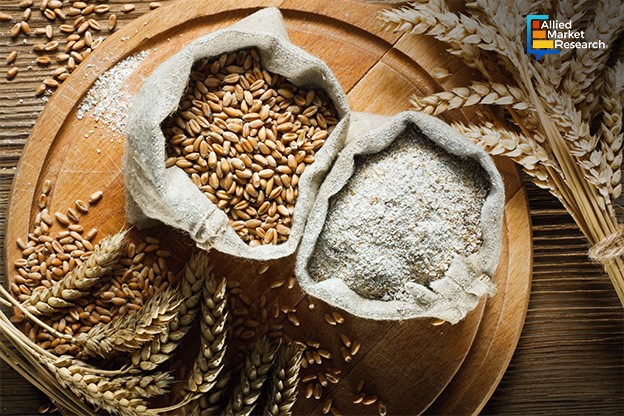Why Are Food Processing Companies Increasingly Switching to Barley Flour-based Products?

10 Jun
2024
Key highlights
- Introduction
- Health benefits of barley flour-based products
- The growth of the industry in Europe
Wheat and rice have traditionally been two of the most popular cereals for agricultural processing and farm goods manufacturing companies. This is primarily because both these cereals are cultivated in almost all major regions of the world and have high demand globally. The Green Revolution that started in the 1960s in many developing nations witnessed a huge rise in the cultivation of these crops to tackle the food insecurity problems in these countries.
However, in the last few decades or so, the problems associated with the over-cultivation of wheat and rice have become quite apparent. Most importantly, it has resulted in a massive decline in groundwater tables, especially in tropical countries. Developing countries in the tropics generally lack perennial sources of water which is why agriculture in these regions generally depends on irrigation for farming activities. The water needed for agriculture and allied activities is usually groundwater which is extracted using electric pumps and borewells. Since wheat and rice require large amounts of water for cultivation, the frequent sowing of wheat and rice in these countries has resulted in a massive decline in groundwater sources. As a result, barley and its associated food products like barley flour have become quite popular in tropical countries.
Increased consumption of barley flour in developing and tropical countries
As said earlier, the growing awareness regarding the environmentally degrading nature of agricultural activities has led to criticism of the overcultivation of wheat and rice due to its water-guzzling properties which has indirectly increased the demand for barley. At the same time, the nutritional benefits offered by this cereal have made it popular among health-conscious people across the globe. In recent times, a medical study commissioned by reputed institutes that examined more than 3.5 lakh people showed that replacing wheat and rice with barley flour reduced the risk of lifestyle diseases like cancer and diabetes by around 15%.
Apart from carbohydrates and proteins, barley flour is rich in vitamins like riboflavin, niacin, and B6, and minerals like zinc, potassium, copper, and magnesium. Due to these ingredients, the regular consumption of food items made from barley flour helps in lowering cholesterol and regulates blood sugar. Recently, a study done on overweight women showed that breakfast items made from barley were much better than oats or wheat in bringing blood sugar and regulating insulin levels.
Moreover, barley has high fiber content which makes it a healthy option for people suffering from issues of indigestion and constipation. Medical studies have shown that barley promotes the growth of good bacteria in the digestive tract, thus increasing the probiotic activity in the gut and reducing gut inflammation.
Europe witnessing massive growth in the barley flour industry
The barley flour industry is expected to experience huge growth across the world owing to the increasing health consciousness among the people. In the past few years, people are increasingly opting for gluten-free foods which has led to a growth in the demand for barley flour products. This trend has been even more prominent in the European region where there is a well-established infrastructure for barley cultivation as it has been a staple crop for European for hundreds of years. Furthermore, Europe has a rich culinary tradition wherein different dishes are prepared using barley flour.
Additionally, countries like the UK, France, Germany, and Italy have enacted laws that set strict standards for food safety and quality control. These standards and regulations ensure that the highest quality barley products are manufactured which have high nutritional content and purity. Along with this, the expansion of the e-commerce sector in Europe has helped in the establishment of robust B2B and B2C distribution channels. This has improved the supply of barley products across the entire province which is expected to open new avenues of growth in the landscape.
To conclude, the barley flour industry is predicted to witness huge growth in the coming period owing to the environmentally sustainable nature of barley crops. Furthermore, the health benefits offered by barley and the growing demand for gluten-free products are anticipated to improve the revenue share of the landscape in the years to come.
For tips and suggestions on how businesses can increase their revenue share in the industry, feel free to contact us.

Koyel Ghosh
Author’s Bio- Koyel Ghosh is a blogger with a strong passion and enjoys writing in miscellaneous domains, as she believes it lets her explore a wide variety of niches. She has an innate interest in creativity and enjoys experimenting with different writing styles. A writer who never stops imagining, she has been serving the corporate industry for the last five years.
Avenue: Entire Library membership of Allied Market Research Reports at your disposal
- Avenue is an innovative subscription-based online report database.
- Avail an online access to the entire library of syndicated reports on more than 2,000 niche industries and company profiles on more than 12,000 firms across 11 domains.
- A cost-effective model tailored for entrepreneurs, investors, and students & researchers at universities.
- Request customizations, suggest new reports, and avail analyst support as per your requirements.
- Get an access to the library of reports at any time from any device and anywhere.
Related Post
-
How are Submarine Cables Transforming Global Connectivity with Enhanced User Experience?
-
Endoscopy Procedures: Transformations in Techniques and Applications
-
AI-Powered Video Analytics: How the Product Actually Works for enterprises
-
Painting Robots: Transforming Precision Coating and Creative Applications
-
Innovations in Pharmacovigilance Systems Advancing Patient Safety
-
Understanding Edge Security: Keeping Data Safe Near the Source
-
Exploring the Use and Advancements of 3D Laser Scanners in Professional Applications
-
Reinforcing Industrial Controls with Smarter Tools and Training








